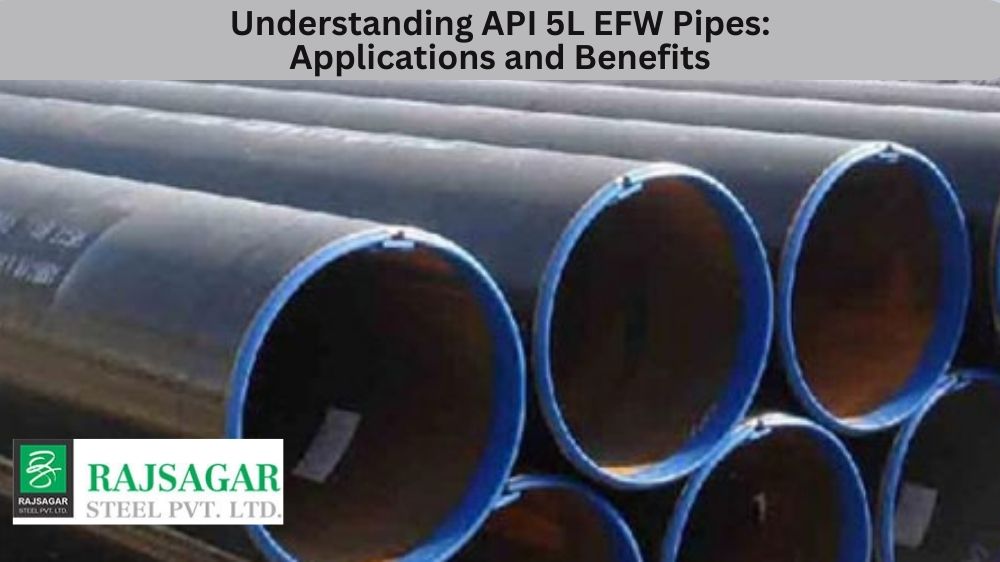In industrial applications, where durability and reliability are paramount, API 5L EFW (Electric Fusion Welded) pipes sit at a pinnacle of preference. Their versatility and robustness make them an excellent choice for a broad spectrum of operations ranging from oil and gas transportation to potable water delivery. This blog post dives into the specifics of API 5L EFW pipes, exploring their applications, benefits, and why they’re crucial in certain industries.
What Are API 5L EFW Pipes?
API 5L specification provides standards for pipes suitable for conveying gas, water, and oil in the oil and natural gas industry. EFW pipes, or electric fusion welding pipes, involve welding steel plate ends together using an electric fusion process to form a cylindrical shape. This method is known for producing high-quality welds, ensuring the integrity and strength of the finished pipes.
Properties and Specifications
API 5L EFW pipes come with a set of distinct properties that allow them to stand out amongst other types of pipes:
- High Strength and Durability: These pipes are crafted to sustain high pressures and resist corrosive environments.
- Dimensional Accuracy: The manufacturing process allows for high dimensional accuracy, critical in pipeline fittings.
- Flexibility in Size and Thickness: Depending on the requirements, the thickness and size can be varied, offering flexibility for different applications.
Applications of API 5L EFW Pipes
Due to their toughness and adaptability, API 5L EFW pipes are used in a wide array of applications:
- Oil and Gas Industry: They are ideal for transporting petroleum and natural gas, especially over long distances.
- Water Infrastructure: These pipes provide a durable solution for water supply systems, including sewage and drainage.
- Construction: In the construction industry, API 5L pipes are used as structural supports and in scaffoldings.
- Chemical Processing Plants: They can withstand aggressive chemicals and are used frequently in chemical delivery systems.
Benefits of Using API 5L EFW Pipes
Opting for API 5L EFW pipes comes with a plethora of advantages:
- Reduced Risk of Failure: The properties of EFW pipes minimize the chances of failure in high-pressure environments, preventing accidents and leaks.
- Cost-Efficiency: Their durability means reduced maintenance and replacement costs.
- Improved Flow Characteristics: These pipes’ smooth inner surfaces permit unrestricted flow, which improves fluid transport efficiency.
- Environmental Resilience: These pipes can endure extreme temperatures and weather conditions without degradation.
Choosing the Right API 5L EFW Pipes
Selecting the right API 5L EFW pipes involves considering several factors:
- Material Grade: The appropriate steel grade must be chosen depending on the material transported and the environment.
- Size and Thickness: Determined by the operational pressure and volume of material transported.
- Standards Compliance: Ensuring the pipes meet all API and other relevant industry standards is crucial for safe operation.
Conclusion
API 5L EFW pipes are a mainstay of many industries’ infrastructures because they offer an unmatched combination of strength, efficiency, and dependability. Anyone working in an industry that depends on these components must know their qualities, advantages and uses.
Understanding the pipe specifications you use for water or oil supply systems is essential to choosing the best pipes for your operations. The characteristics of API 5L EFW pipes are expected to develop as technology advances, solidifying their place in global industrial endeavours.
To include these strong pipes in your upcoming project or gain additional knowledge about various applications and their effects, stay updated with industry norms and advancements to ensure optimum performance and safety.

